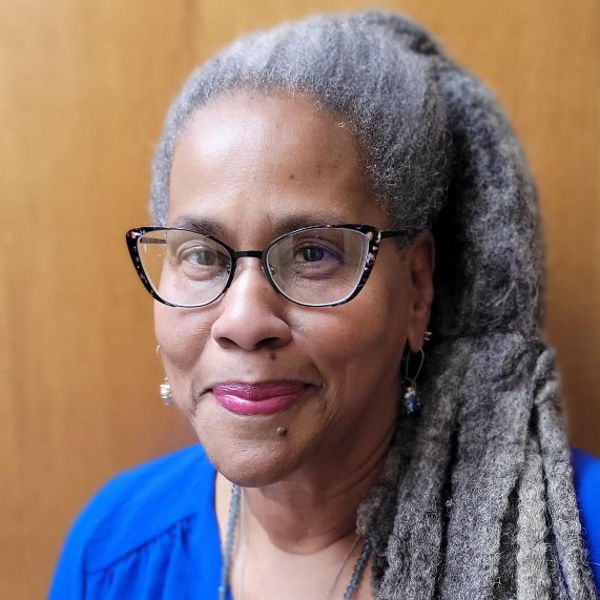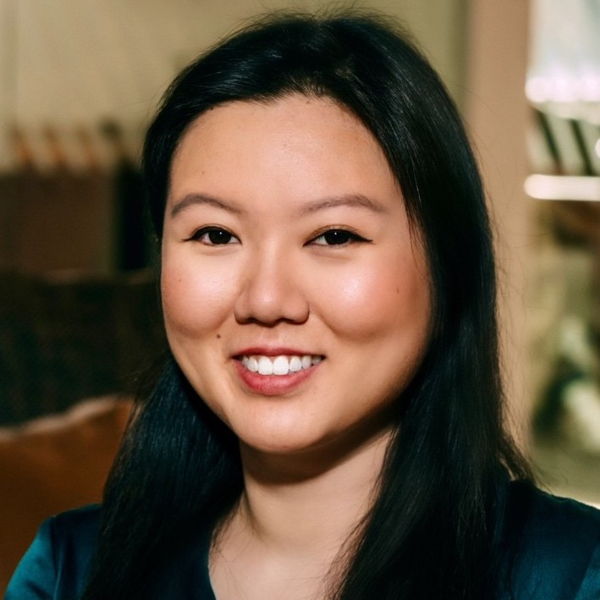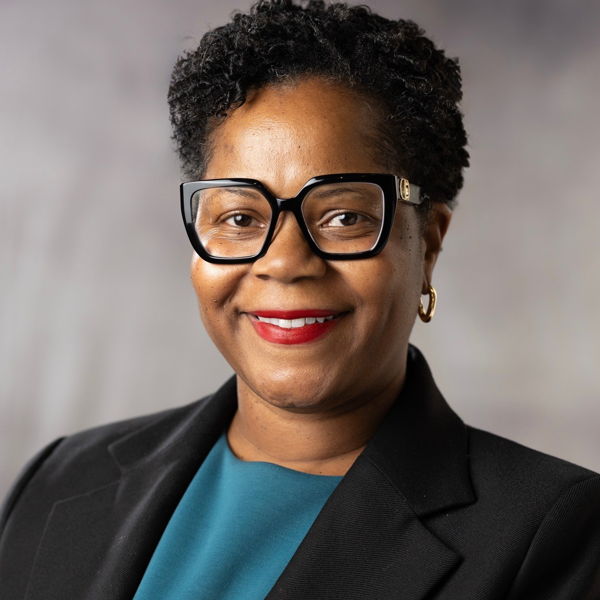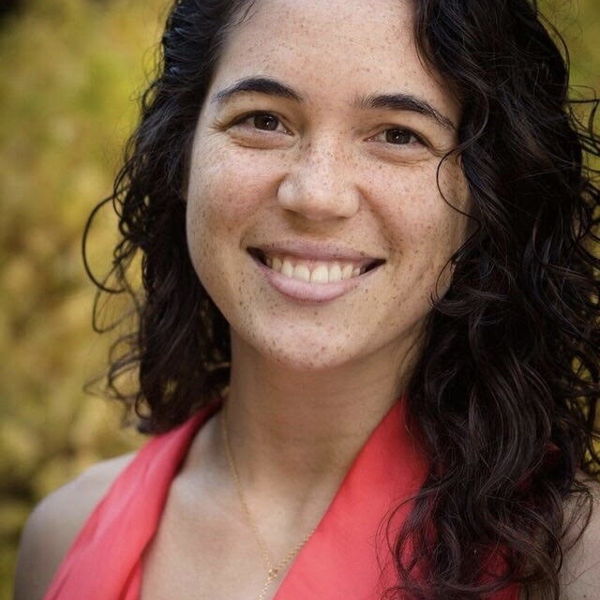-
course Info -
Content -
Ce Approvals -
Policies
Addressing Complex Eating Disorders in Underrepresented Populations: Practical Tools for Practitioners through IFS Therapy
Learning Objectives
Identify three specific strategies for applying the Internal Family Systems (IFS) therapy model to address eating disorders in individuals with co-occurring mental health conditions. Critique two common biases (e.g., weight stigma, ethnic bias) that impact treatment outcomes for minoritized populations and propose culturally competent interventions to address these biases. Demonstrate the use of one trauma-informed approach to engage clients presenting with eating disorders and co-occurring mental health issues during a simulated case study exercise.
Learning Levels
Intermediate
Target Audience
Course Instructor(s)
-
 Angela MensahAssistant Teaching Professor
Angela MensahAssistant Teaching ProfessorDr. Angela Denise Mensah is an accomplished educator, scholar, and advocate for diversity and inclusion, currently serving as an Assistant Teaching Professor in the Department of Communication at the University of Arkansas, Fayetteville. With over 20 years of teaching experience, she specializes in media literacy, body image communication, race, gender, and power studies. Her dynamic teaching approach integrates service-learning pedagogy and fosters student engagement with challenging societal topics. Dr. Mensah holds a Ph.D. in Communication Studies from Bowling Green State University, where her dissertation, The Fattening House: A Narrative Analysis of The Big, Black, and Beautiful Body Subjectivity Constituted on Large African American Women, showcased her expertise in critical cultural studies. She also earned an M.A. in Communication from Western Michigan University, focusing on organizational communication and semiotic analysis, as demonstrated in her thesis on Queen Latifah’s film roles. Throughout her career, Dr. Mensah has been recognized for her innovative teaching methods and commitment to social justice. Notable accolades include the Faculty Recognition for Outstanding Teaching at the University of Arkansas and the Social Justice Division Pedagogy Award. She is also an active member of the National Communication Association and the Southern States Communication Association, contributing to academic discourse on communication and cultural studies. In addition to her academic pursuits, Dr. Mensah is a published author, with works such as The Fat Other and Disclose and Demystify: The Discrepancy Between the Concept and Action of Diversity, which explore intersectional issues of identity, race, and body politics. She is a sought-after speaker and panelist, having presented at conferences like the Tri-State ED/IFS Conference and Weight Stigma Awareness Week, and has appeared on platforms such as KUAF Undisciplined. A passionate mentor, Dr. Mensah dedicates her efforts to fostering inclusive and supportive learning environments. She is actively involved in curriculum development, having spearheaded initiatives such as the service-learning course Communicating Body Image, designed to promote body esteem among at-risk youth. Her commitment to education extends to leadership roles, including serving on the Undergraduate Curriculum Committee and was the Associate Director for Recruitment in African and African American Studies at the University of Arkansas. Dr. Mensah’s work reflects a deep commitment to bridging academia and community, empowering students and audiences to critically engage with media, representation, and societal narratives.
-
 Jeanne Catanzaro, Ph.DClinical Psychologist
Jeanne Catanzaro, Ph.DClinical PsychologistJeanne Catanzaro, PhD, is a clinical psychologist who has specialized in treating eating disorders and trauma for the past 25 years. She trained in psychodynamic psychotherapy, Somatic Experiencing, and EMDR before discovering the Internal Family Systems Model. An approved IFS consultant, she has written two chapters on using IFS to treat eating disorders, one in Innovations and Elaborations in Internal Family Systems Therapy (2017) and another in Trauma-Informed Approaches to Eating Disorders (2019). For the past ten years she’s been focused on healing eating issues across the spectrum. Her book, tentatively titled Unburdened Eating: An IFS approach to Healing Your Relationships with Food and Your Body, focuses on healing the cultural legacy burdens that keep people from having Self-led relationships with their bodies.
-
 Iness PanniDirector of Medical Services, Pony Bird, Inc.
Iness PanniDirector of Medical Services, Pony Bird, Inc.Iness Panni RN, BSN, MSN, began her 46-year nursing career in 1977 AT Truman Medical Center, historically the segregated general hospital #1 and #2, until they merged as Truman Medical Center in 1976. General Hospital #2 served Kansas City's African American population, especially the poor. As a teaching hospital affiliated with the University of Missouri School of Medicine, Truman provided a rich environment for Iness to build comprehensive nursing knowledge, skills, and expertise. Nursing became more than a passion - she describes nursing as her "mission field."
-
 Erikka Taylor, MD, MPH
Erikka Taylor, MD, MPHPlease add bio hereDr. Erikka Daniene (Dah-neen) Taylor, MD, MPH, DFAACAP, is a highly accomplished double-board certified Child and Adult Psychiatrist with over 15 years of specialized experience in eating disorders and mental health. Currently holding the position of Chief Medical Officer at Arise, a virtual program dedicated to eating disorders treatment, Dr. Taylor also serves as a Board Director at Project HEAL, a renowned nonprofit committed to dismantling systemic barriers and providing comprehensive support and education to individuals from diverse backgrounds grappling with eating disorders.
In addition to her leadership roles, Dr. Taylor is a partner at Catalyst Therapeutic Services, a private practice located in Durham, NC. Furthermore, she serves as a Consulting Associate at Duke University Medical Center, where her expertise significantly contributes to the advancement of psychiatric care. A passionate advocate for mental health, Dr. Taylor participates in the DSM 5 committee of the APA, Race, Ethnicity, and Equity committee of the North Carolina Psychiatric Association and she has served as the Past President of the North Carolina Council of Child & Adolescent Psychiatry.
Dr. Taylor's academic journey includes a Bachelor of Science degree from Spelman College, a Master of Public Health in Health Care and Leadership from UNC Chapel Hill, and a Doctor of Medicine from Duke University School of Medicine. Additionally, she holds certification as a yoga instructor, further integrating holistic approaches into her practice.
-
 Joan ZhangCEO @ Arise
Joan ZhangCEO @ AriseJoan Zhang (she/her) is the co-founder and CEO of Arise, whose vision is to create a world where everyone, everywhere has the freedom to heal from eating disorders and disordered eating. Joan brings her own lived experience with eating disorders and mental health conditions alongside a deep empathy for the diversity of the mental health journeys of so many others to drive her work as a product leader in the mental health tech space.
Prior to starting Arise, Joan was a product leader at Headspace Health where she led initiatives that empowered members to get into clinical care faster than ever before and led personalization initiatives. Joan holds a B.A. cum laude in Psychology with a minor in Computer Science from Harvard College, where she conducted fMRI research to understand how stress impacts our ability to utilize cognitive reappraisal and also published a book on the mental health experiences of Asian American students at Harvard.
-
 williams.lesley@mayo.eduMD
williams.lesley@mayo.eduMDDr. Lesley Williams is a board certified Family Medicine physician and eating disorders expert. She received her medical degree from the University of Kentucky College of Medicine and completed her family medicine residency at Mayo Clinic Arizona. Dr. Williams has given national and international lectures on various topics related to eating disorders and is recognized as a clinician leader in the field. Dr. Williams serves on the Academy for Eating Disorders executive board of directors. Her professional passions include midlife care for women, health equity advocacy and weight inclusivity education. She is the award-winning author of the children’s book, Free to Be Me: self love for all sizes and contributing author to How to Nourish Yourself Through an Eating Disorder.
Her clinical practice encompasses providing full spectrum primary care for all ages. Dr. Williams enjoys helping patients strive for well-being regardless of their medical conditions.
Clinical focus areas include:
• Eating disorders • Well-being promotion • Integrated mental & physical health • Weight inclusive care • Healthy aging • Midlife health • Menopause
In addition to her clinical activities, Dr. Williams is active in research and education. She provides educational content on topics including midlife eating and body image issues, work life integration and weight stigma prevention in healthcare.
-
 Mimosa Collins, RDN, CDFounder of Rejoyn Wholeness
Mimosa Collins, RDN, CDFounder of Rejoyn WholenessMimosa Collins is a dedicated registered dietitian and founder of Rejoyn Wholeness, a virtual private practice committed to equitable, accessible, and client-centered nutrition care. With over a decade of experience in the field, she has worked extensively with individuals facing complex eating disorders, integrating Internal Family Systems (IFS) therapy into her practice. Her expertise has been shared through regional conferences, workshops, and mentorship, including serving as a Level 1 IFS Training Program Assistant. Through her work, Mimosa continues to challenge traditional models of care, emphasizing inclusivity, harm reduction, and liberation-focused healing.
Disclosure
References
Lester, R. J. (2017). Self-governance, psychotherapy, and the subject of managed care: Internal Family Systems therapy and the multiple self in a US eating-disorders treatment center. American Ethnologist, 44(1), 23-35. This ethnographic study examines the application of IFS therapy in treating eating disorders, highlighting its effectiveness in addressing the multiplicity of self within therapeutic settings. Haddock, S. A., Weiler, L. M., Trump, L. J., & Henry, K. L. (2017). The efficacy of Internal Family Systems therapy in the treatment of depression among female college students: A pilot study. Journal of Marital and Family Therapy, 43(2), 256-270. This pilot study explores the effectiveness of IFS therapy in reducing depressive symptoms, providing insights that may be applicable to treating co-occurring mental health conditions alongside eating disorders. Lucero, R., Jones, A. C., & Hunsaker, J. C. (2018). Using Internal Family Systems theory in the treatment of combat veterans with post-traumatic stress disorder and their families. Contemporary Family Therapy, 40(3), 266-275. This article discusses the application of IFS therapy in treating PTSD among combat veterans, offering perspectives on addressing complex trauma, which is relevant to understanding co-occurring conditions in eating disorder treatment. Sweezy, M. (2011). Treating trauma after Dialectical Behavioral Therapy: Integrating Internal Family Systems therapy and DBT. Journal of Psychotherapy Integration, 21(1), 90-102. This paper presents a method for integrating IFS therapy with DBT to treat clients with complex trauma histories, providing a framework that can be adapted for clients with co-occurring eating disorders and other mental health issues. Wilkins, E. J. (2015). Using an IFS-informed intervention to treat African American families surviving sexual abuse: One family's story. Journal of Feminist Family Therapy, 27(1), 1-16. This case study illustrates the use of an IFS-informed intervention in treating African American families dealing with sexual abuse, emphasizing the importance of cultural competence in therapeutic settings. Bohus, M., Kleindienst, N., Hahn, D., Müller-Engelmann, M., Ludäscher, P., Steil, R., ... & Dyer, A. S. (2020). Dialectical behavior therapy for posttraumatic stress disorder (DBT-PTSD) compared with cognitive processing therapy (CPT) in complex presentations of PTSD in women survivors of childhood abuse: A randomized clinical trial. JAMA Psychiatry, 77(12), 1235-1245. https://doi.org/10.1001/jamapsychiatry.2020.2148. This study evaluates the efficacy of Dialectical Behavior Therapy for PTSD (DBT-PTSD) against Cognitive Processing Therapy (CPT) in treating women with complex PTSD resulting from childhood abuse. The findings suggest that DBT-PTSD may be more effective in reducing PTSD symptoms and related issues in this population. This research contributes to the ongoing discussion about integrating DBT with trauma-focused therapies to address complex trauma cases, similar to the integration of DBT and Internal Family Systems (IFS) therapy proposed by Sweezy.
CE Process Info
Content
-
Materials3 parts
-
Healthy According to Whom
-
The Role of Medical Stigma
-
Addressing Complex Eating Disorders in Underrepresented Populations: Practical Tools for Practitioners through IFS Therapy
-
-
New York State Education Department's State Board for Social Work (NYSEDSW)
CE Learning Systems SW CPE is recognized by the New York State Education Department's State Board for Social Work as an approved provider of continuing education for licensed social workers #0060.
-
New York Education Department for Licensed Mental Health Counselors (NYSEDLMHC)
CE Learning Systems, LLC is recognized by the New York State Education Department's State Board for Mental Health Practitioners as an approved provider of continuing education for licensed mental health counselors. #MHC-0072.
-
New York State Education Department's State Board for Psychology (NYSEDPSY)
CE Learning Systems dba CE-Credit.com & AddictionCounselorCE.com is recognized by the New York State Education Department's State Board for Psychology as an approved provider of continuing education for licensed psychologists #PSY-0016.
-
New York State Education Department's State Board for Marriage and Family Therapy (NYSEDMFT)
CE Learning Systems dba CE-Credit.com & AddictionCounselorCE.com is recognized by the New York State Education Department's State Board for Marriage and Family Therapy as an approved provider of continuing education for licensed marriage and family therapists #MFT-0045.
-
Joint Accreditation (JA)
In support of improving patient care, CE Learning Systems is jointly accredited by the Accreditation Council for Continuing Medical Education (ACCME), the Accreditation Council for Pharmacy Education (ACPE), and the American Nurses Credentialing Center (ANCC), to provide continuing education for the healthcare team.
-
American Psychological Association (APA)
Continuing Education (CE) credits for psychologists are provided through the co-sponsorship of the American Psychological Association (APA) Office of Continuing Education in Psychology (CEP). The APA CEP office maintains responsibility for the content of the programs.
FAQs
-
Course CompletionTo complete the course, review the course objectives, then watch the video power point presentations following along with the corresponding pdf, and lastly complete an evaluation. Your certificate will be available to download immediately when you complete the evaluation. Note that you can not continue in the course until you complete the previous section.
-
ADA Accommodations - TCGADA accommodations will be made in accordance with the law; please indicate your special needs upon registering by sending an email to connect@thechesnutgroup.com.
-
Where can I find my Attendee Dashboard link?Upon registering, you should receive an email from support@ce-go.com with a link to access your Attendee Dashboard. If you do not see it in your inbox, please check your spam/junk folder. If you still cannot locate the email, you may retrieve your Attendee Dashboard link by clicking HERE
-
RefundsRefunds are not available.
-
Additional SessionsIf you would like additional sessions, contact connect@thechesnutgroup.com.
-
CE Hours 5 -
Type Self-Paced -
Publication Date Apr 15th, 2025
Reset password
We sent a reset password link to the email address you provided.
{{reset.email}}
If you do not see the email, try checking your junk or spam folder.
If you don't receive a link in the email you provided, please click the button below to resend the
verification email.
Please wait {{timer}} seconds to resend
Sign in
Sign in
Thanks for signing up!
We sent an verification email to the address you provided. Please check your email to verify your email address.
{{signup.email}}
If you do not see the email, try checking your junk or spam folder.
If you don't receive a link in the email you provided, please click the button below to resend the verification email.
Please wait {{timer}} seconds to resend
Sign up
Shopping Cart
-
{{ item.name }} ({{ item.courses.length }} courses)
{{ item.credit_hours }} Credits
{{ item.coupons.map((c)=> c.code).join(', ') }}${{ item.totals.price }}${{ item.totals.total_price }}
Cart is empty
Thank you for your purchase
To access the course content, click the button below. Enrolled courses may be accessed at any time by going to your Account and clicking Courses